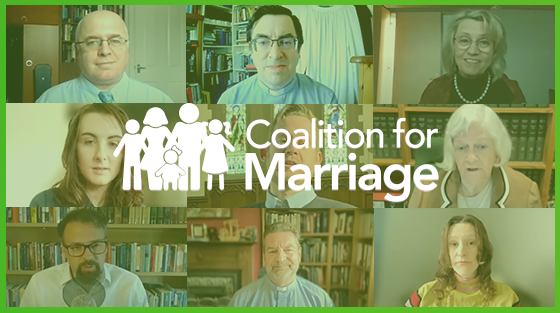Refusing to be silenced on the meaning of marriage

This is the second of three compilation videos showcasing insights from our many interviews throughout 2024. It features people who have refused to give in to attempts to silence views around real marriage. This episode captures individuals’ bold stand for man-woman marriage and freedom of conscience. Watch the full video here: https://youtu.be/uhWQTNWPJnQ
Ryan Clarke speaks about the growing pressure on schools to conform to LGBTQ+ ideology and the need for the Church to take a stand. He emphasises: “Silence for the Church cannot be an option anymore.” Ben Dybowski shares his experience of being dismissed from his role for expressing mainstream Christian beliefs around marriage, questioning the irony of such actions occurring in a “diversity and inclusion” setting.
Finnish MP Päivi Räsänen celebrates her legal victories defending her freedom of speech, but highlights the ongoing battle as her case progresses to the Supreme Court. She notes that many who disagree with her “defend my freedom of speech because it is important for everyone”.
Bernard Randall discusses how speaking positively about marriage can trigger accusations of harming children’s feelings. He warns that self-censorship can be more damaging than the consequences of standing by the truth: “Actively living by truth, even if you lose your job… at least you can look yourself in the mirror every day.”
Ann Widdecombe reflects on the courts’ recognition that belief in traditional marriage is “worthy of respect” and the importance of collective action, stating: “If enough people take a stand, then at the very least there is safety in numbers.”
Lizzie Harewood shares her experience of being excluded from a discussion on religious and cultural sensitivities in RSE, underlining the challenges faced by Christians advocating for traditional values. Ian Paul warns against compromises on marriage doctrine, citing the rapid decline of churches that have abandoned biblical teaching.
Libby Littlewood provides a personal account of her struggle with transgender ideology and how embracing her God-given identity brought clarity and empowerment. She asserts: “By being a female, I define femininity.”
Joe Boot challenges pastors to equip themselves with a biblical worldview and address cultural issues from a gospel perspective. He calls on the Church to recover its “prophetic voice” and to speak boldly.
At C4M, these courageous voices remind us that defending man-woman marriage is more than a social issue—it is integral to truth, freedom, and the wellbeing of society. As we close out the year, let’s be inspired to share their insights and stand firm for marriage in our own spheres of influence.
